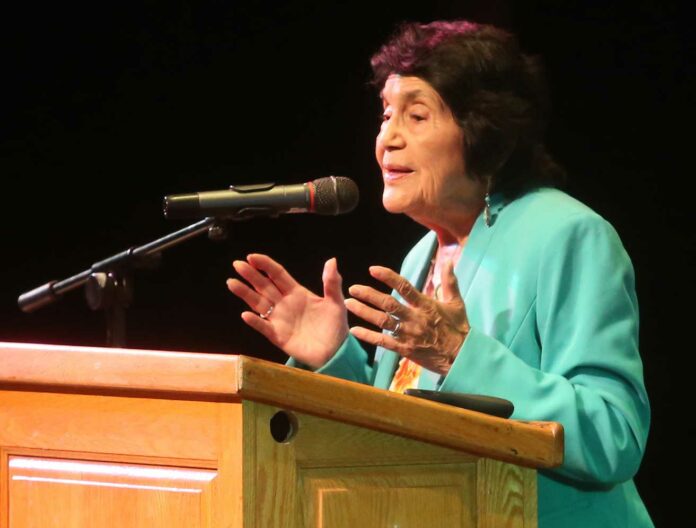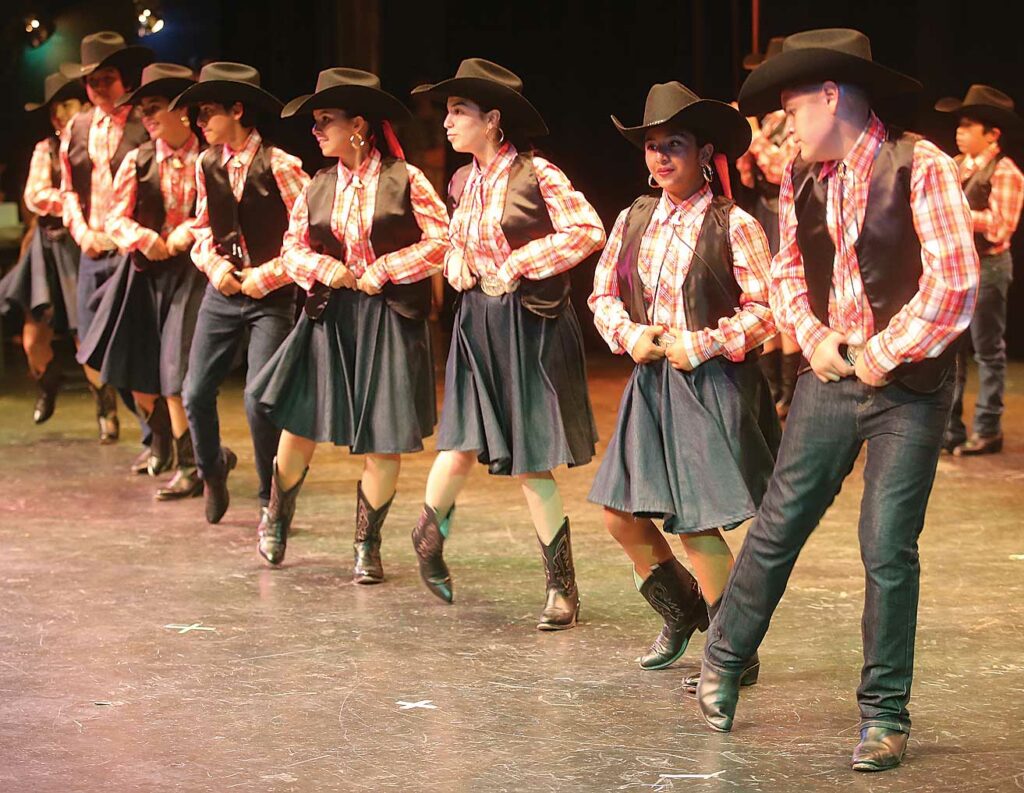
About 700 people packed the Mello Center in Watsonville Saturday afternoon for Harvesting Equity, an event where safety, living wage contracts, housing and immigration reform for farmworkers took center stage.
At the podium were Mireya Gómez-Contreras, Ann Lopez and civil rights activist Dolores Huerta.
To launch the event, young dancers from Estrellas de Esperanza treated the crowd to folkloric dances from around Mexico.
Administrative Co-leader of Esperanza Community Farms, Gómez-Contreras explored the benefits of organic farming, the dangers of pesticides still in use today and the benefits of creating a “food system that can be run with dignity and connectivity.”
She emphasized the importance of creating and maintaining relationships between schools and farms, especially when hazardous materials were being used on farms near schools. She also decried the “Cheeto Culture,” referencing the packaged, processed chips and snacks frequently devoured by area students, and the importance of replacing that with healthy food at schools.
Lopez, the executive director of the Center for Farmworker Families, began her talk by stating that farmworkers are in a position similar to workers in the U.S. South when slavery was legal.
“And they also live in constant fear of deportation,” Lopez said. “Farmworkers are impoverished, often abused, with minimal or no health insurance; they are trapped, controlled and with almost no chance of escape. They are overworked with a poor diet and die at a much lower life expectancy than the rest of us. Farmworkers and their family members are the most exposed population to the health impacts of toxic pesticide exposure.”
She said leukemia, brain tumors, bone cancer, birth defects, autism spectrum disorder and learning disabilities are widespread amongst children of farmworking families, and that it is almost impossible to collect data on the frequency of such problems.
“These are not isolated incidents,” she added.
Huerta, a figure in social justice whose work spans decades that began in 1962 when she and Cesar Chavez founded United Farm Workers, also targeted dangerous pesticide use.
“The only way we can stop the use of these deadly pesticides is to put it in the hands of Health and Human Services,” she said. “Take this out of the EPA; take it out of the Ag Department. It is not just the farmworkers that have these cancers.”
Huerta also spoke of banning oil companies from putting oil wells that emanate poisonous gasses and toxins near schools, observing that “the worst air pollution in the state” is in Bakersfield, surrounded by oil wells as well as heavy pesticide use, with the top three cities nationwide all in the San Joaquin Valley. Lopez went on to stress that in addition to these problems, farmworkers and their families lack quality of education.
Information tables and vendors lined the lobby of the Mello Center, including the local group Campaign for Organic & Regenerative Agriculture (CORA), Safe Ag/Safe Schools of Californians for Pesticide Reform, the Land Trust of Santa Cruz County, and Eat for the Earth, the initial organizer of the event and provider of plant-based snacks.
CORA’s short-term goal is a one-mile pesticide-free buffer around the city of Watsonville, a goal recently supported by a Watsonville City Council resolution. Long-term, CORA wants to see the entire Pajaro Valley and Santa Cruz County become a model for climate-friendly agriculture free of pesticides, incorporating educational and cultural resources for all ages.
At the close of the event, swarms of people gathered at the Dolores Huerta Foundation table where they lined up to get autographs and pose for photos with Huerta.












Great pictures Mr. Hannula